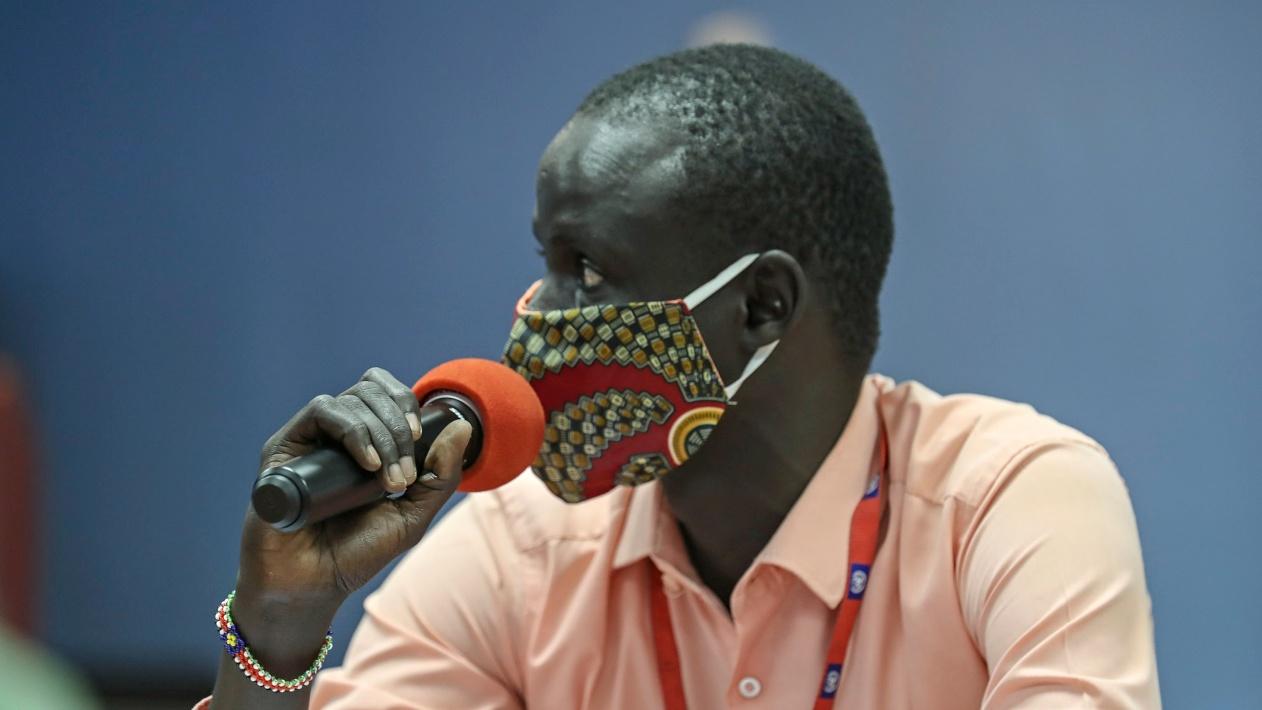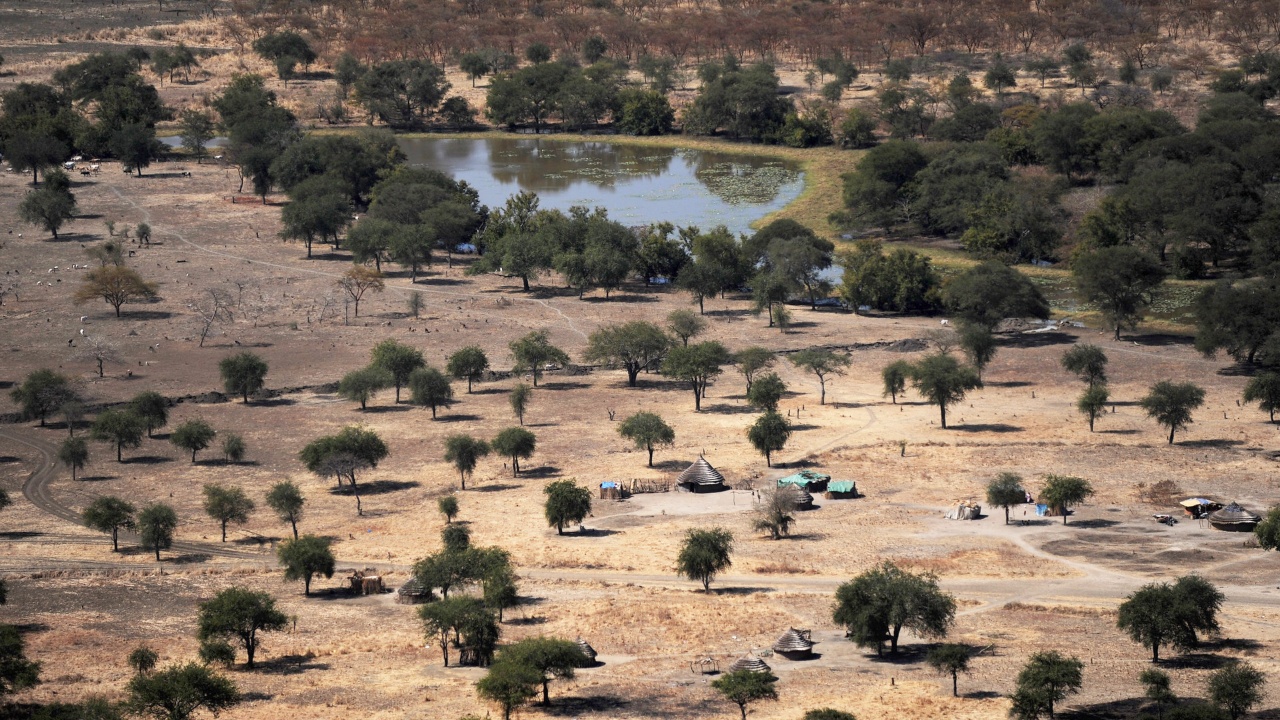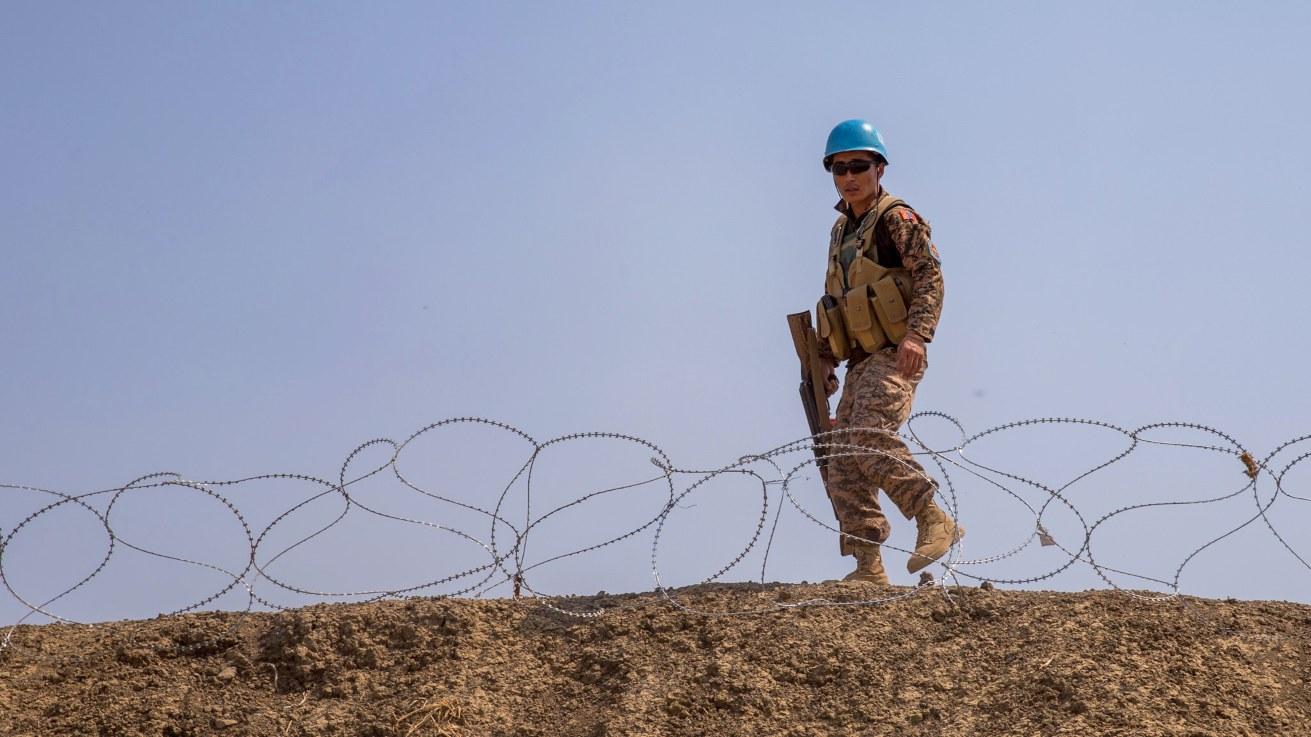Sudan’s social policy is failing to secure a specialist labour force in its public sector, with educated demographics drawn to western aid agencies and private enterprise. Muez Ali examines the contrast with social policies in the country’s post-independence period, which promoted high-quality education opportunities and created a generation of highly-educated leaders in political office today.
This post is based on research conducted at the LSE Centre for Public Authority International Development.
In Sudan, the post-revolution influx of INGOs is palpable. The country’s re-integration into the global community and aid sector is well under way. Once settled, INGOs scour the Sudanese labour market for talent that matches their insatiable demand for bilingual, Western-educated development enthusiasts eager to make a difference. There’s a considerable pool of talent to choose from.
The overwhelming majority has very similar professional and educational profiles. Today, most are either in full time employment in an INGO or Western aid agency or are on their way there. They also have similar family backgrounds. They could easily be sorted into three, maybe four, groups: parents used to be middle-class and now work in one of the countries in the Cooperation Council for the Arab States of the Gulf (Bahrain, Kuwait, Oman, Qatar, Saudi Arabia and the UAE); parents used to be middle-class but left Sudan at least three decades ago and are now middle-class in a Western country; or parents used to be middle-class, decided to stay in Sudan but earn a portion of their income in a foreign currency. In Sudan, parental education (or income) is a good predictor of which aid agency you end up working for.
There also seems to be a recipe (if you’re lucky enough to be born to the right parents, of course) for these outcomes. Step one: get an undergraduate degree, preferably but not necessarily in a social science. Step two: be interested in human development – an interest that could be acquired through social circles, parents’ profession or, preferably, through extracurricular reading. Step three: try to find a low-level job in the aid sector. Step four: apply for a Master’s programme in Europe. Step five: come back to Sudan armed with a Master’s degree in a development-related field, ready to earn a salary in a foreign currency – I mean, kick some ass. Yes, that’s the catch.
The reason young, Western-educated, English-speaking Sudanese all end up working for INGOs and Western aid agencies is because they pay much more than any other potential employer. And for development-philes with postgraduate degrees, the only other potential employers are the government and educational institutions, which both offer relatively bad remuneration packages. And this is not unique to Sudan. So, clearly, there is a problem. It’s obvious why INGOs and Western aid agencies pay more and it’s understandable why young, Western-educated Sudanese want to work for them. The problem is the long-term implications.
The education to private sector pathway
Before I started my PhD at UCL I was a researcher at the National Energy Research Centre in Sudan. My colleagues at the centre were all graduates of Sudanese higher education institutions. The senior administrative and research staff all had postgraduate degrees, all from local institutions. Most junior staff were recent graduates. They were all on government salaries and whatever meagre benefits came with it. Predictably, the centre had limited resources. Internet access was through USB dongles, distributed to those who needed it most, and subscriptions were invariably paid out of pocket.
The centre’s activities were for a long time limited to organising workshops on the benefits of solar energy. Essentially, very little research was done. It was a research centre on paper and by name, and, for a government monetising its political survival, research output was seldom an issue. The junior staff at the centre had offices but no computers. They had all stayed on after completing their National Service, which requires recent graduates to work in a public institution for 10 months. Given the precarity of the labour market at the time, and the difficulty of navigating the socio-political dynamics of applying for government jobs, staying on was a popular strategy. Most junior staff were from low middle-income households and were products of the public education system.
There is a potentially good explanation for this clustering. The public education system mostly caters to those from low-income and low middle-income backgrounds; basically, those who cannot afford private education. In Sudan, the capabilities of university graduates are probably normally distributed: the exceptionally smart and exceptionally hard working – and most probably from households on the upper end of the lower middle-income spectrum – sat on one end, and on the other, the underachievers, with everyone else somewhere in between. The smart ones either enrol in a postgraduate programme abroad on a scholarship (from which they probably will not return, but that’s a story for another day) or, if they return, end up in good private sector jobs.
The private sector offers better income opportunities and access. Some in the middle of the distribution end up in the private sector and some end up in the public sector. The ones on the tail end, the underachievers, are the most desperate and, therefore, most likely to stay on. Of course, the centre’s junior staff are not all underachievers. There will always be those from the middle part of the distribution who are genuinely interested in research or are content with a government salary. But the likelihood of finding someone from the smart end in a research centre is virtually zero.
So, the private sector has first dibs, able to offer the smartest graduates and their families opportunities at social mobility. The private sector also claims the graduates of the private education system who are keen to maintain their upper-middle and upper-income status and who generally have good social capital. The public sector, therefore, is left with the graduates of the public education system who either couldn’t find a job in the private sector or don’t fancy their chances. Today, within the public sector, research centres are the least likely to receive capacity support from Western aid agencies, which makes them even less attractive.
Sudan’s post-independence social policies
Recently, I interviewed two experts on social protection in Sudan. One is a retired Professor of Economics and current member of the board of directors of the Central Bank of Sudan. The other is a Professor of Social Anthropology at the University of Khartoum. Both are from villages in North Darfur. The retired economist, born in Kuma, a village near the town of Mellit, has a PhD from the University of London. The anthropologist, born in Fatabarno, has a PhD from the University of Edinburgh. They represent a generation of Sudanese academics, professionals and civil servants who benefited from the government’s social policies in the post-independence era until the 1980s.
At that time, good quality education was offered through a public schooling system of prestigious secondary schools scattered across the different regions in Sudan. These schools also played an important role in social cohesion: students from across the regions travelled to these schools for their education. For North Darfur, it was Kutum Middle School and Al Fashir Secondary School. Students who successfully completed each stage of education moved on to the next one, until they eventually ended up at the University of Khartoum and, by the 1970s, the University of Gezira in Gezira State. These graduates were then employed in the various government departments or sent abroad for postgraduate study based on the country’s needs. Depending on the department and the nature of the work, some of the more experienced university-educated employees were also sent to pursue postgraduate education. Those returning with postgraduate degrees were given senior roles in government or academic positions.
This process was repeated every year. The system wasn’t perfect. It had many failings and ethnically and regionally insensitive design flaws, but it captured a reasonable geographical area.
The current Prime Minister, Abdalla Hamdok, is from the same generation. He also benefited from the prevailing social policies of the time. He was born in Al Dibaibat, a village in South Kordofan. After completing his university education, he spent most of the 1980s at the Ministry of Finance. He eventually went on to earn a doctorate in development studies from the University of Manchester. The current Minister of Finance, Gibril Ibrahim, has a similar story. So does the acting Minister of Finance before him, and the first Minister of Finance of the transitional period, who both conceptualised and formally adopted the government’s current economic reform package. In fact, almost all of Sudan’s current senior government officials and diplomats are products of the Sudanese government’s post-independence education and social policies.
Specialist labour concentrations in the private and aid sectors
Why are these three stories important? Well, unlike their parents’ and grandparents’ generations, the current waves of incoming young, Western-educated Sudanese – whose specialisations are based on personal choice or Chevening scholarship requirements as opposed to what the country needs – will not be employed by the government. For two reasons: the government can’t afford them and, well, the government doesn’t know they’re coming. Realistically, they will either end up in the private sector or the aid sector. So just like their locally publicly educated counterparts, they too will avoid working in the public sector. And here is the problem. The country’s skilled, specialist labour is concentrated in the private and aid sectors. Over time, barring any significant policy interventions, this trend will persist and intensify: those earning government salaries will also want better paying jobs – but not necessarily better jobs – in the aid sector. The smarter ones who were missed by the first filter straight after university will be captured by a subsequent one.
The retired economist I interviewed decided to specialise in education because, in his view, given where he was born, he ‘should have never received an education.’ And had it not been for the education policies of the time, he probably wouldn’t have. He decided to specialise in education because there were millions like him, born in isolated rural areas to low-income families, who will probably never get an education unless the government makes it available, easily accessible and, to some degree, mandatory. He wanted to contribute and help develop the very system that gave him this luxury. He wanted to be part of the very expensive, very expansive government-funded and administered, good quality education system. He wanted to ensure that Sudan has a high capitalisation rate: if Kuma could produce an economics PhD, what else could it produce?
There are two questions I want to leave you with. Given that Sudan’s current corridors of power are populated by beneficiaries of post-independence social policies, how is it that the powers that be do not want to replicate them? And, given the current economic reform package, what is the likelihood of someone born in Fatabarno today getting a doctorate degree from the University of Edinburgh?
These will be followed up in a forthcoming post.
UNMISS photo. UN Photo: Isaac Billy. Licensed under CC BY-NC-ND 2.0.





